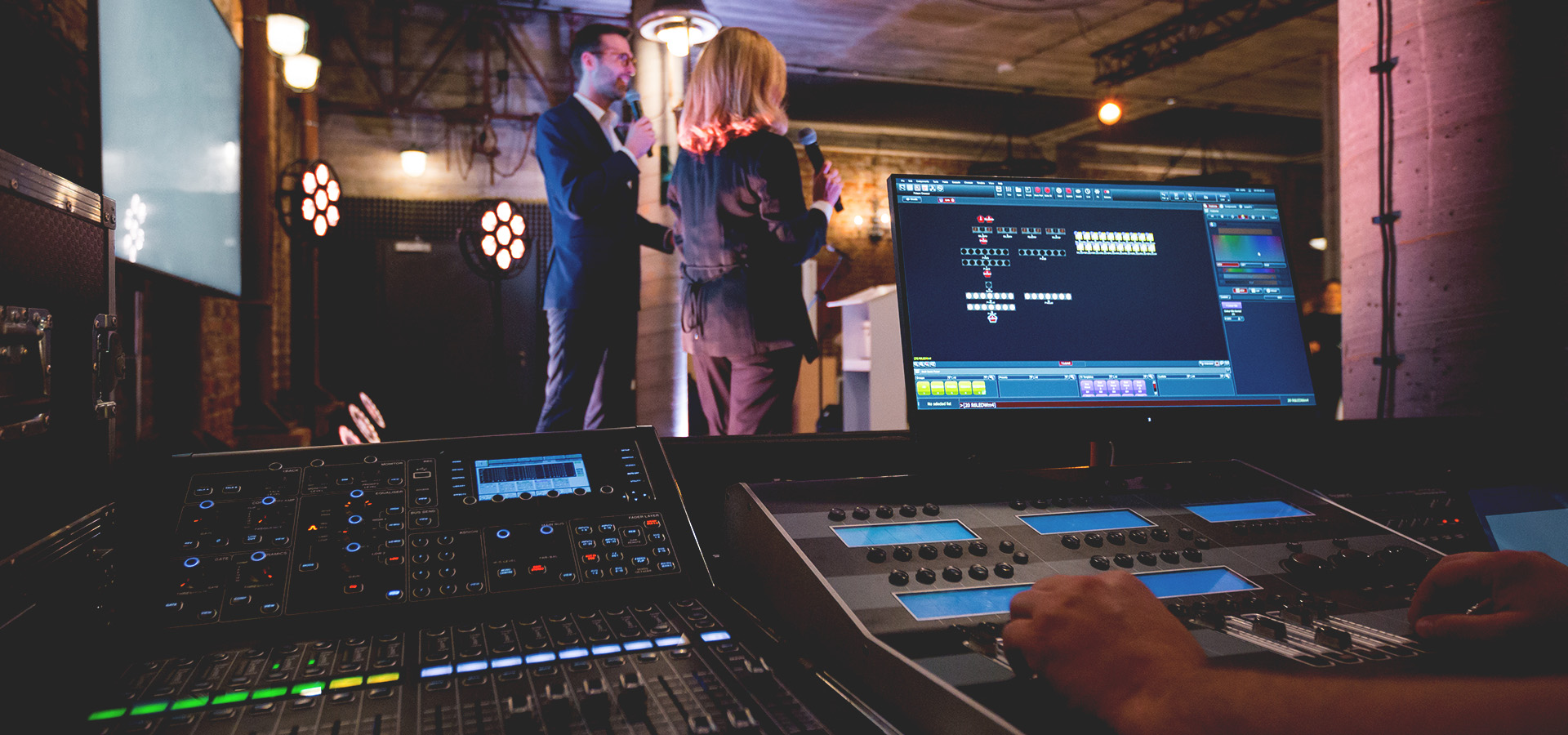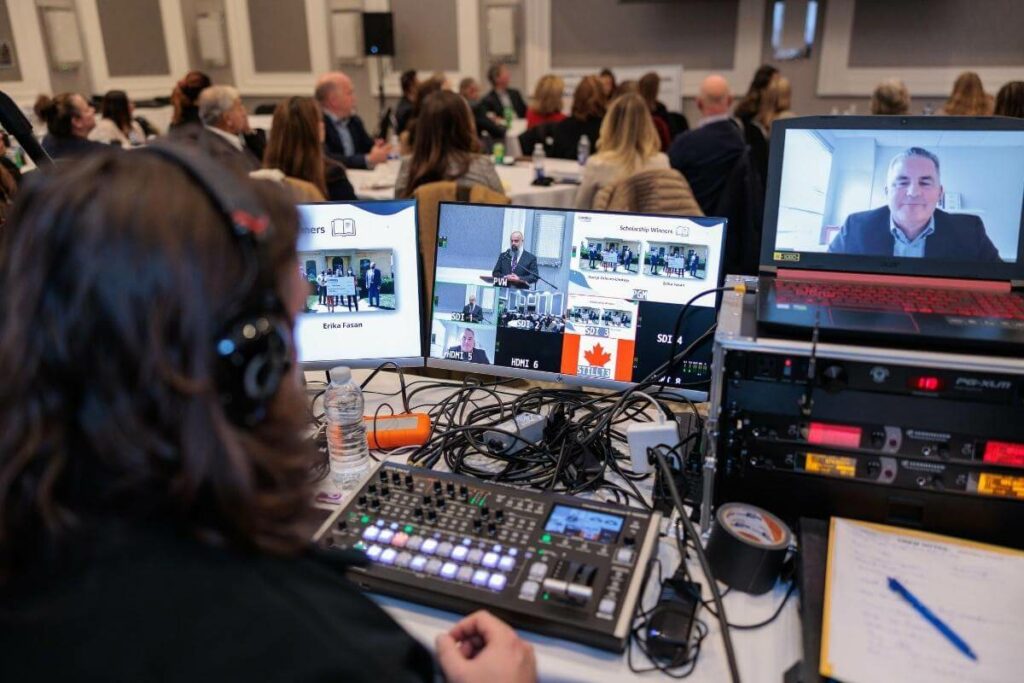Recognizing the Principles of Event Production
The details of event production call for an extensive understanding of numerous fundamental elements, including the facility of clear purposes, meticulous budgeting, and tactical location choice. Each component plays an essential role in the seamless execution of an occasion, affecting everything from target market engagement to logistical efficiency. In addition, the technical facets of production and the dynamics of group control are just as vital to accomplishing a natural result. As we check out these vital elements, one need to take into consideration how they interrelate and impact the overall success of an occasion. What strategies can be employed to harmonize these elements effectively?
Defining Event Goals
Defining occasion objectives is a crucial step in the occasion production process, offering as the structure whereupon all planning and execution are developed. Clear objectives give direction, ensuring that all stakeholders recognize the event's objective and preferred outcomes. These goals should specify, measurable, attainable, relevant, and time-bound (WISE), which enables efficient examination of success post-event.
Determining the target market is necessary in shaping the purposes. Comprehending their expectations, demographics, and rate of interests allows event organizers to customize web content and experiences that reverberate with guests. In addition, aligning the goals with more comprehensive organizational goals cultivates support from management and stakeholders, ensuring that the occasion adds to the overall objective.
It is important to interact these objectives clearly to all group participants included in the planning process. By establishing distinct goals, event manufacturers can develop a structured framework that overviews decision-making and source allotment, inevitably leading to an effective event.
Budgeting for Success
Reliable budgeting is crucial for the effective production of any event, as it provides an economic framework that sustains all planning activities. A well-structured spending plan allows occasion coordinators to assign sources effectively, making sure that every aspect of the occasion is properly funded while reducing the threat of overspending.
To produce an effective spending plan, begin by recognizing all prospective expenditures, such as venue prices, event catering, entertainment, tools rentals, and advertising and marketing. It is important to classify these costs right into fixed and variable expenses, which assists in understanding which components are non-negotiable and which can be adjusted based upon financial restrictions.
In addition, income resources should be determined early in the budgeting process. This includes ticket sales, sponsorships, and product sales. By approximating potential earnings, organizers can straighten their expenses as necessary, making sure that the occasion continues to be financially practical.
Normal surveillance of the budget throughout the planning process is essential. This enables for adjustments to be made as needed, keeping economic discipline. Eventually, an efficient budget not just safeguards versus unexpected costs but likewise improves the general top quality and experience of the occasion, ensuring its success.
Venue Selection Techniques
Picking the best venue is a crucial element of effective occasion production, as it establishes the phase for the total experience. The primary step in place option is to specify the occasion's objectives and target market, which will certainly lead the selection of location and capacity. Considerations such as accessibility, ambiance, and available amenities need to straighten with the event's motif and objective.
Following, assess the venue's capacity to suit your anticipated variety of guests while guaranteeing comfort and involvement. It is vital to visit possible places in individual to evaluate their layout, centers, and total appeal. Additionally, analyze logistical facets including vehicle parking availability, public transportation gain access to, and any constraints that may influence the event.
Budget plan constraints are additionally critical; ensure that the place fits within monetary parameters while using necessary solutions. Agreement settlements should be come close to with diligence, looking for transparency pertaining to additional prices, cancellation policies, and liability insurance coverage.
Last but not least, consider the place's reputation and past efficiency for comparable events (Audio Visual Services). Involving with previous customers can offer valuable insights right into the place's reliability and service top quality, eventually helping in making an informed decision

Technical Production Components
Technical production aspects act as the foundation of any event, making certain that all audio, aesthetic, and lighting elements function harmoniously to develop an immersive experience. These elements include a selection of innovations and techniques aimed at supplying content efficiently and engagingly.
Stereo are crucial, including microphones, YOURURL.com audio speakers, and mixing devices to make certain clear audio shipment. High-quality audio is necessary for maintaining audience interaction, especially in larger venues. Visual elements consist of estimate systems, LED displays, and video feeds, which enhance the visual narrative of the occasion and support the general theme.
Lighting plays an essential function in establishing the state of mind and guiding audience focus. A properly designed lighting plan includes various techniques, such as spotlights, ambient lighting, and color washes, to create dynamic ambiences suitable for different visit here sections of the event.
Furthermore, technical production components call for thorough preparation and assimilation. This consists of pre-event noise checks, video practice sessions, and lights examinations to attend to possible obstacles prior to the occasion begins. Ultimately, a cohesive technological manufacturing method not only raises the event experience yet additionally mirrors the professionalism and interest to detail that participants anticipate.

Group Sychronisation and Functions
Successful occasion production depends upon seamless team coordination and clearly defined roles among all participants. For an event to run efficiently, each staff member have to understand their responsibilities and how they contribute to the overall vision. This starts with developing a thorough business framework that defines functions such as event manager, logistics coordinator, technological supervisor, and advertising and marketing expert. Each function brings particular responsibilities that should be performed along with one another.
Reliable communication is important in this collaborative setting. Audio Visual Services. Routine meetings and updates ensure all staff member are aligned and can adjust to any adjustments or difficulties that occur. Making use of job management devices can facilitate this interaction, enabling real-time updates and task monitoring
Moreover, cultivating a culture of synergy is necessary. go to this website Encouraging cooperation among varied ability not only enhances problem-solving yet also advertises a positive functioning ambience. When staff member feel valued and encouraged, their productivity boosts, ultimately resulting in an extra successful occasion.
Conclusion
To conclude, a comprehensive understanding of event manufacturing encompasses defining clear purposes, establishing a robust spending plan, selecting a suitable place, managing technical manufacturing elements, and ensuring effective team coordination. Each part plays an essential function in the total success of an occasion. By diligently attending to these principles, occasion organizers can enhance the participant experience, optimize sources, and attain wanted results, consequently adding to the event's total efficiency and effect within the designated audience.
The intricacies of occasion production need a comprehensive understanding of numerous foundational components, consisting of the establishment of clear purposes, precise budgeting, and critical place option.Specifying occasion goals is an important step in the event production procedure, serving as the structure upon which all preparation and execution are built. By developing well-defined objectives, event manufacturers can develop an organized structure that guides decision-making and source allocation, ultimately leading to a successful event.
In final thought, a detailed understanding of occasion production encompasses defining clear purposes, developing a durable budget plan, picking a proper place, managing technological manufacturing elements, and making sure reliable team coordination. By meticulously dealing with these fundamentals, event planners can enhance the participant experience, maximize sources, and attain desired results, therefore contributing to the occasion's overall performance and influence within the desired audience.